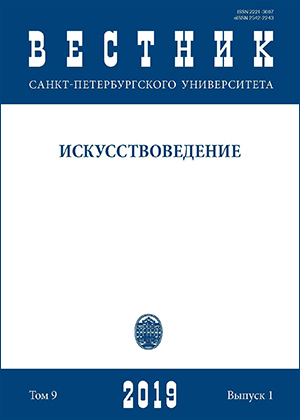Genre transformation in the musical folklore (“Shamil’s Prayer” case)
DOI:
https://doi.org/10.21638/spbu15.2019.102Abstract
This article uses the Caucasian dance “Shamil’s Prayer” to examine the complex processes of genre transformation of folklore verbal and musical texts in the North Caucasus region. The dance was improvised by a Kumyk harmonist in the early twentieth century, based on the eyewitness account of the capture of Imam Shamil, and it spread widely in the Cossack environment and then throughout the USSR. Over the next hundred years, the dance sometimes included humorous and satirical verses, as a plot-theatrical composition in authenticity and on the stage of amateur art, as music for saber flanking, etc. Examining mechanisms of transformation reveals that the musical text changes the genre marking: the dance turns into a song, the song turns into a prayer, and prayer becomes a hymn. In the content plan, the original historical hero turns either into an antihero, or is mocked. Avar Shamil is “replaced” by nameless Chechens and Circassians, and later by a Cossack. The change of the hero correlates with the genre characteristic of the music. The dance gradually turns into a comic song, then into a sparkling lezginka and, finally, into a Cossack hymn. The musical invariant of the song is separated from the original source and is contaminated with other well-known melodic themes. The objective reasons for the genre transformation lie in the dynamic sociocultural processes in southern Russia associated with local wars, the living functioning of the tradition using the adaptive techniques of folklore developed over the centuries. The sociocultural challenges of modern society in southern Russia are also associated with the need for Cossack consolidation and cultural revival.
Keywords:
Shamil’s prayer, dance, lezginka, genre transformation, hero, anti-hero, variant, invariant
Downloads
References
Источники
References
Sources
Downloads
Published
How to Cite
Issue
Section
License
Articles of "Vestnik of Saint Petersburg University. Arts" are open access distributed under the terms of the License Agreement with Saint Petersburg State University, which permits to the authors unrestricted distribution and self-archiving free of charge.






